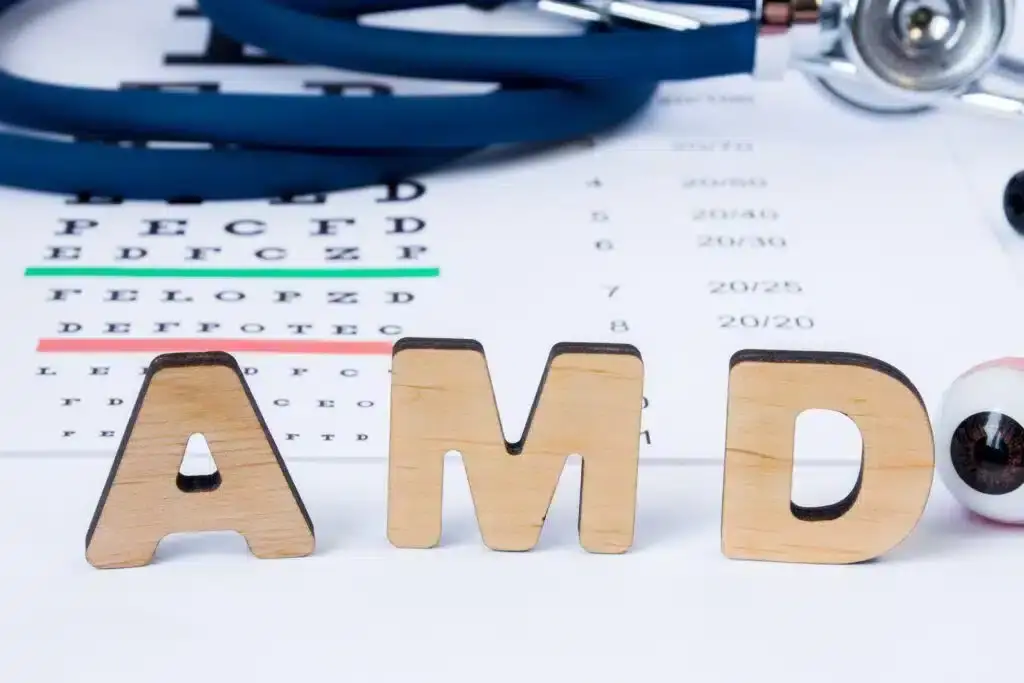You can thank a portion of your eye known as the macula for providing your sharpest and most detailed vision. But unfortunately, some people experience vision loss as they age because their macula begins to thin and break down. This is known as age-related macular degeneration (AMD), and if left untreated, it can lead to blindness. Currently, there is no surefire way to avoid developing AMD. But if you know it runs in your family, we encourage you to learn how to prevent macular degeneration so that you can take action and strive to avoid it or slow its progression.
How to Prevent Macular Degeneration
Don’t smoke.
Don’t start smoking. And if you already smoke, consider quitting. According to All About Vision, this is the most crucial step you can take if you want to prevent AMD. Smokers are up to four times more likely to develop macular degeneration.
Know your family health history.
Do you have a first-degree relative with AMD? You have a much higher risk of developing it too. This means you should be extra vigilant about watching out for symptoms of macular degeneration. You should also mention your family health history to your eye doctor.
Eat a healthy diet.
More specifically, focus on consuming the following:
- Dark, leafy, green veggies (like raw kale, spinach, and collard greens)
- Fruits
- Nuts
- Fish (or a fish oil supplement)
In addition, limit your intake of refined carbohydrates, like white bread, potatoes, white rice, sugary soft drinks, and sugary foods. Diets high in refined carbs increase a person’s risk of AMD. These foods have a high glycemic index, which leads to a rapid increase in the release of blood sugar.
Take a daily multivitamin.
Discuss this idea with your general physician. A multivitamin supplement can be a good idea for a variety of reasons, especially for older people who sometimes struggle to get all the nutrients they need from their diet.
Ask your doctor about macular health supplements.
If you’ve already been diagnosed with AMD, ask your doctor about supplements formulated to help with macular degeneration. For example, AREDS and AREDS2 may benefit people with intermediate or late AMD.
Exercise regularly.
According to a study published by the British Journal of Ophthalmology, regular exercise reduces the risk of macular degeneration. Participants in the study walked at least two miles a day, three times each week, or performed an equivalent form of exercise.
Keep an eye on your blood pressure and cholesterol.
Evidence suggests that maintaining healthy blood pressure and cholesterol levels can help protect against macular degeneration.
Schedule regular appointments with your eye doctor.
Finally, the American Academy of Ophthalmology recommends that all adults between the ages of 45 and 60 have a dilated eye exam every two to three years. And if you’re over the age of 60, you should have a dilated eye exam every year. This will allow your eye doctor to keep an eye out for macular degeneration and help you receive proper treatment if you do begin to develop AMD. In addition, be sure to tell your eye doctor if you have a family history of macular degeneration, vision loss, or other eye-related conditions.
_____
If you’re wondering how to prevent macular degeneration, the steps above will help. However, keep in mind that they aren’t guaranteed to shield you from AMD. Especially if you already have a strong genetic predisposition, you may develop AMD anyway. But if you continue scheduling regular eye appointments, you’ll be able to catch the condition early and seek treatment.
When was the last time you had your eyes checked? If you live in southwest Missouri, stop by Heffington’s. Since 1975, the Heffington family has assisted the Springfield community with top-quality eye care and affordable eyeglasses and contacts. To learn more about our products and services, please get in touch with us online, send an e-mail to asktheexperts@heffingtons.com, or give us a call at 417-869-3937 (Optiland location) or 417-882-3937 (House of Vision location).

